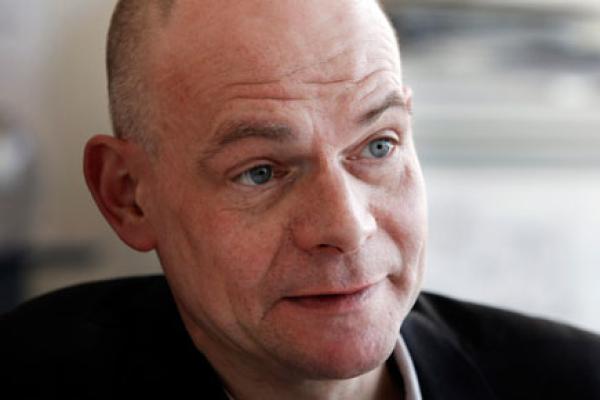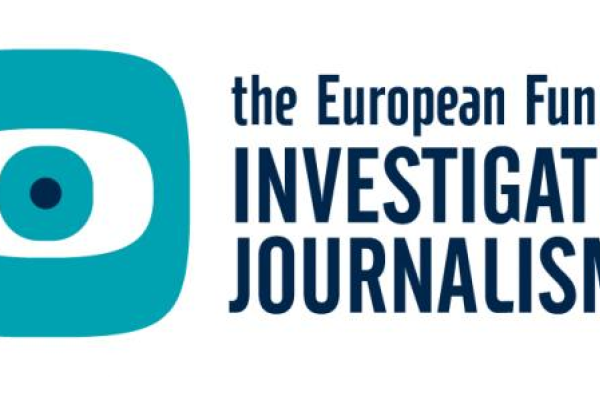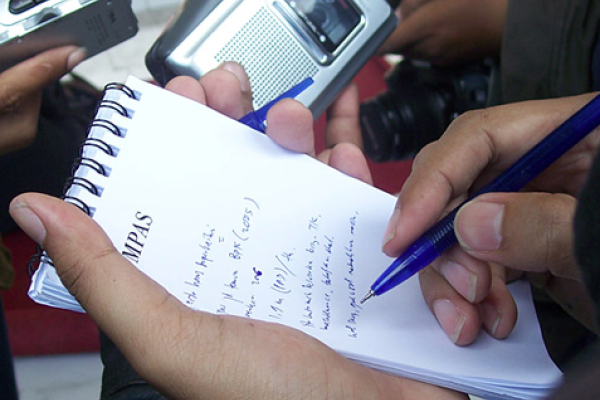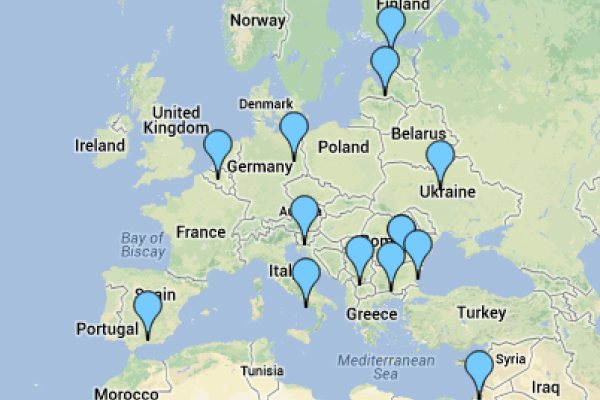Hans-Martin Tillack (°1961) began his journalism career in 1988. In 1993 he started working for German magazine Stern, where he began investigating and ultimately exposed the Eurostat fraud scandal. In 2005 he was awarded the Leipzig Prize for the Freedom and Future of the Media for his EU investigations.
From 2009 until 2013 Tillack was a jury member of Journalismfund.eu’s cross-border investigative journalism working grant project. On 3 December 2013 he will be speaking in Brussels about the protection of sources in the EU. For now we’ve asked him about his time in the jury.
Hi Hans-Martin. After four years, let’s evaluate: did you have an interesting time in the jury?
I have to say I was a bit surprised when Brigitte first contacted me with the question of being in the jury, but indeed it was very interesting. It was great to see all the different application subjects and project ideas from journalists from all over Europe and I enjoyed discussing them with the other experienced journalists in the jury.
Were the applications mostly what you expected from them? Were there many that surprised you in a positive or negative way?
Surprisingly, the jury often managed to reach an agreement on a lot of applications relatively quickly. The differences in quality between the different applications was sometimes quite apparent. In other cases, the applications weren’t eligible because they were for example regular documentary projects rather than actual investigative journalism projects. Finally, some applications were simply too vague to get a positive evaluation.
That last issue is a bit of a fundamental problem that is not easy to resolve. Of course journalists have to have some insight in the topic that they want to investigate. After all, they have to be sure that there is a possible story in there somewhere. But obviously they don’t yet know which story exactly, because otherwise they wouldn’t need any research funding anymore. It is often difficult to find a compromise there…
Can you see any differences in subjects between the applications from e.g. Northern vs Southern Europe or Western vs Eastern Europe?
Well, some of the best applications came from smaller countries in Eastern or Central Europe. It is not hard to find an explanation for that observation: bigger, Western European, countries such as Germany, France and the UK all have a broad, elaborate media landscape. That is not the case in Central European countries such as Romania, Moldova or Bulgaria, where the few big media corporations are often still heavily influenced by politicians and businessmen.
Why is the cross-boder aspect of the projects as important as it is?
National media still mostly cater to a national audience, which is why there is almost no money for transnational investigations and stories. And that will not change drastically in the first few years.
In every new application round Journalismfund.eu receives more applications. Does that say anything about the current journalism landscape?
Of course there is the fact that Journalismfund.eu is becoming increasingly well-known among journalists in Europe. And obviously the more people know the organisation exists, the more people will apply. But the increasing interest in Journalismfund.eu also shows there still is a need for funds for long-form journalism. Finally, there are more journalists who engage in cross-border investigations. Of course, both long-form and cross-border journalism has existed for years, but the pressure on these forms of journalism is growing.
What advice would you give journalists who are thinking of applying for a working grant?
There are two things that you have to do. One: when applying with a possible story, make sure you’ve already got some nuggets, some pieces of information. Find out as much as you can beforehand, so you’re sure there is a story there. Apply with as concrete a project as possible. Two: make sure you have an international team. If you don’t, your project will have no chance of getting approved. Setting up those cross-border connections is an absolute must!
Thank you, Hans-Martin, and see you on 3 December!
(Photo: (c) journalist.de)



